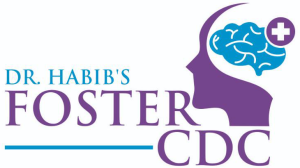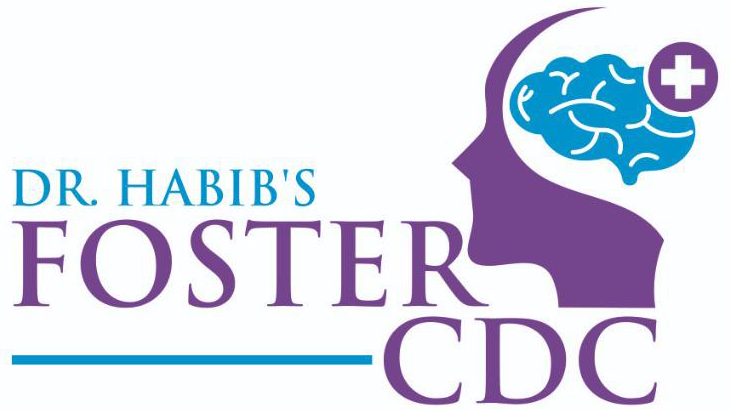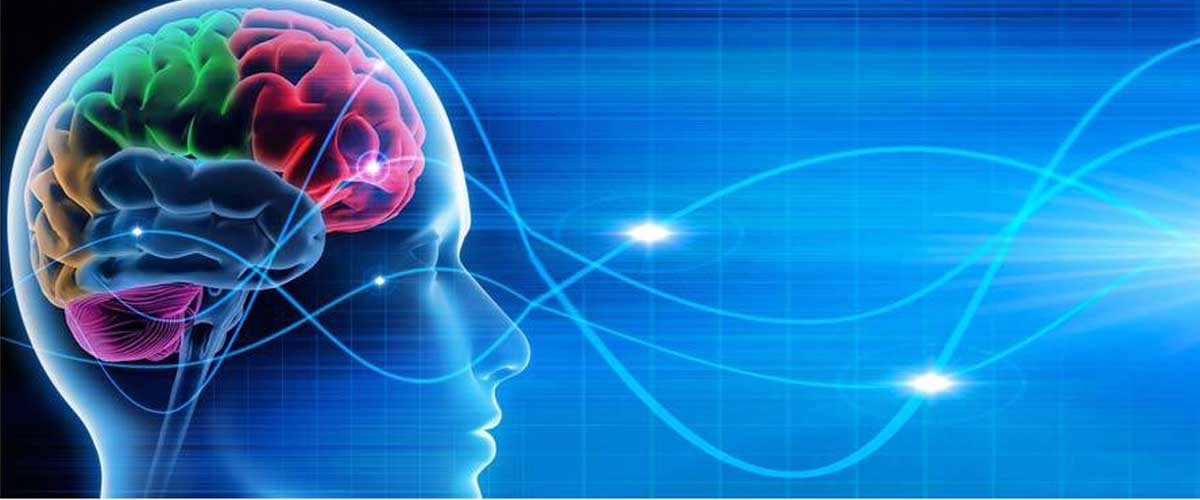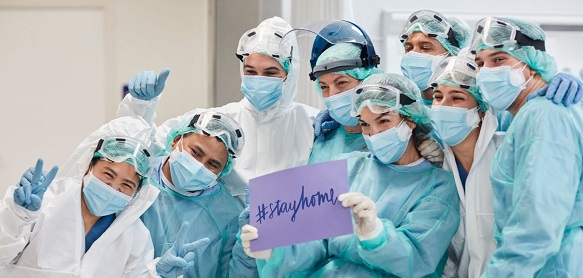Dr Habib G Pathan
Dr. Habib G Pathan is the best pediatric neurologist in Hyderabad with more than 19 years of experience in pediatric neurology.
He is a senior consultant pediatric neurologist and director of Dr Habib’s Foster CDC, Hyderabad. Dr. Habib treats all types of neurological disorders, syndromes and defects in children including headaches, migraines, epilepsy, febrile seizures, strokes, learning difficulties such as dyslexia, dysgraphia, muscle disorders such as hypotonia, dystonia, dyskinesia, myopathies, and muscular dystrophies; developmental delays, learning and attentional difficulties such as ADHD (attention deficit hyperactivity disorder), Autism and Asperger’s Syndrome; Angelman syndrome, movement disorders & physical disabilities such as cerebral palsy; neurodevelopmental disorder, encephalitis, meningitis, insomnia; fatigue; sleep disorders; congenital brain and spinal cord disorders.
He has undergone training in pediatric neurology from SAT Hospital, Trivandrum under Dr PAM Kunju and Dr. Kalpana – well-known personalities in Paediatric Neurology.
Dr. Habib Pathan established Dr. Habib’s Foster CDC to foster growth, positive development and behavior; special skills, and overall development of children with special needs in a holistic environment.

Testimonials
FAQs
-
What is attention Deficit Hyperactivity Disorder (ADHD)?
ADHD is a neurological rather neurobehavioral disorder that affects a child’s ability to pay attention and exercise age-appropriate inhibition. Owing to excess hyperactivity or impulsiveness or inattentiveness the child’s natural working ability, school related activities, studies and work get compromised. The condition manifest during pre or early school years.
-
How common is ADHD among children?
Approximately 4 to 5 percent children are affected by ADHD. Even adults are also affected.
-
How is the behaviour of the children suffering from ADHD?
There are basically three predominant behaviours seen in children with ADHD. They include hyperactive-impulsive type characterized by lacking severe inattention; Inattentive type characterized by lacking significant hyperactive-impulsive behaviour and the third one is combined type – which is inclusive of both hyperactive-impulsive and inattentive symptoms. The symptoms begin to manifest over months with hyperactivity and impulsiveness appearing before inattention.
-
What are the typical symptoms of ADHD?
Forgetfulness; disorganization; difficulty in performing activities and organizing tasks; avoidance of tasks and activities that require sustained mental efforts. Symptoms associated with hyperactivity-impulsive type behaviour: showing restless behaviour in situations demanding quiet behaviour; running, climbing and leaving a seat; difficulty waiting for turns or standing in lines. Symptoms associated with inattention type behaviour: do not listen properly when addressed directly; trouble focusing and maintaining attention in play or work; makes careless mistakes and ignores details and do not follow instructions properly. Children who have combined type behaviours exhibit both hyperactivity-impulsive type and inattention type symptoms. The children demonstrate the symptoms that have lasted for at least six months.
-
How is ADHD diagnosed?
The condition is difficult to diagnose as the behaviour and symptoms vary across settings. The diagnosis is majorly based on the symptomatic history, persistent and number of behaviours and to what extent such behaviours have restricted a child’s performance. In a nutshell, the diagnosis is based on symptoms, history and impairments. A trained, experienced and qualified paediatric neurologist or psychologist with a special training in diagnosing mental, behavioural and ADHD can make a clinical diagnosis.
-
What are the causes of ADHD?
ADHD is a neurological disorder and it is due to changes in the brain chemicals, activity and functions. The risk of a child getting ADHD increases with a strong family history of ADHD. In almost 50% of the parents who had ADHD as child also have a child with ADHD. A strong family history is indicative of a genetic cause of ADHD.
-
What is the treatment for ADHD?
Though there is no specific treatment, usually the treatment is aimed at addressing both behavioural and cognitive functioning and it is basically symptomatic. Therefore, the treatment may include medications (specially for challenging children), educational intervention, psycho-education, behaviour modification, cognitive behavioural therapy.











